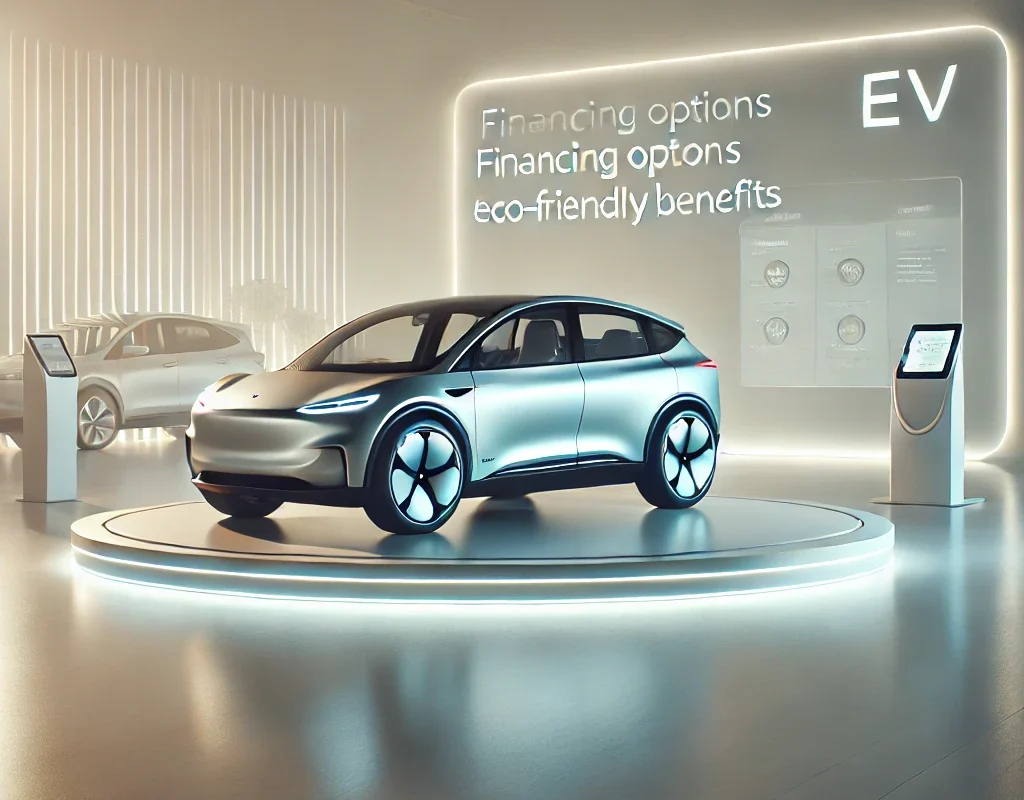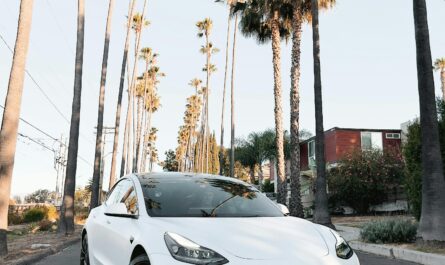Top EV Loan Options for 2025: Affordable Financing for Your Electric Vehicle
Electric vehicles (EVs) are no longer a niche choice—they are becoming the mainstream option for environmentally conscious consumers and tech-savvy drivers. With advancements in EV technology and improved infrastructure, 2025 is shaping up to be a pivotal year for the electric vehicle market. But as EVs grow in popularity, so does the need for affordable and accessible financing options. This guide explores the top EV loan options for 2025, helping you navigate the best ways to finance your next electric car and make the switch to a greener, more cost-effective future.
The EV Market in 2025
The electric vehicle market has grown exponentially in recent years, and 2025 is expected to mark another significant leap. With global automakers like Tesla, Ford, General Motors, and Hyundai ramping up production of electric models, consumers have more options than ever. From budget-friendly EVs like the Nissan Leaf to luxury models like the Lucid Air, there’s an electric vehicle to suit every lifestyle and budget.
Additionally, governments worldwide continue to encourage EV adoption through incentives, tax credits, and investments in charging infrastructure. As a result, financing an electric vehicle has become more accessible, and lenders are stepping up to offer tailored loan options that make purchasing an EV easier than ever.
What Are EV Loans?
EV loans are specialized auto loans designed specifically for purchasing electric vehicles. Unlike traditional car loans, EV loans often come with lower interest rates, extended repayment terms, and unique benefits like green incentives or discounts on electric charging equipment.
Many lenders, from banks and credit unions to online platforms and automakers themselves, now offer EV loans. With competition increasing, borrowers can find attractive terms that make financing an EV more affordable than traditional internal combustion engine (ICE) vehicles.
Why EV Loans Are Different from Traditional Auto Loans
EV loans stand out from standard auto loans in several key ways:
- Lower Interest Rates: Many lenders offer reduced rates as an incentive for purchasing environmentally friendly vehicles.
- Green Incentives: Some EV loans include additional perks, like discounts on home charging stations or reduced fees for borrowers installing solar panels.
- Tax Credits and Rebates: EV buyers may qualify for federal and state incentives, which can significantly reduce the overall cost of ownership.
These unique benefits make EV loans an attractive option for anyone considering switching to electric.
Top EV Loan Options for 2025
Let’s explore the leading options for financing your electric vehicle in 2025. Whether you prefer working with a bank, credit union, or online lender, there’s an EV loan tailored to meet your needs.
1. Banks Offering EV Loans
Major banks like Chase, Bank of America, and Wells Fargo now provide specialized EV loan programs. These banks often offer competitive interest rates for qualified borrowers and may even include incentives for choosing electric vehicles.
- Pros: Established reputation, in-person customer service, and additional financial services.
- Cons: Strict credit requirements and limited flexibility compared to credit unions.
2. Credit Unions for EV Financing
Credit unions are an excellent choice for EV loans, as they often provide lower interest rates and more personalized service than traditional banks. Navy Federal Credit Union and Alliant Credit Union are leaders in this space, offering green auto loans specifically designed for EV buyers.
- Pros: Lower rates, local focus, and flexible terms.
- Cons: Membership requirements may apply.
3. Online EV Loan Providers
If you’re looking for speed and convenience, online lenders like LightStream, SoFi, and Upgrade offer EV loans with fast approval processes. These platforms often feature user-friendly tools, such as loan calculators and paperless applications, making it easy to compare offers.
- Pros: Quick approval, competitive rates, and transparent processes.
- Cons: Limited in-person support.
4. Manufacturer-Backed Financing
Many automakers, including Tesla, Rivian, and General Motors, have their own financing programs for EV buyers. These programs often come with special offers, such as zero or low-interest loans, when purchasing directly from the manufacturer.
- Pros: Exclusive deals, seamless financing process, and incentives like free charging.
- Cons: Financing may be tied to specific models or terms.
5. Government and Nonprofit Programs
The U.S. government and various nonprofit organizations also support EV financing through grants, low-interest loans, and green energy programs. These options are ideal for buyers looking to maximize incentives and reduce upfront costs.
- Pros: Access to rebates and low-interest rates.
- Cons: Limited availability and additional paperwork.
How to Compare EV Loan Offers
When evaluating EV loan options, it’s essential to compare factors such as interest rates, loan terms, and additional perks. Here are a few tips:
- Look Beyond the Rate: Consider the total cost of the loan, including fees and early repayment penalties.
- Evaluate Flexibility: Check whether the lender allows prepayments without penalties.
- Consider Incentives: Some lenders offer bonuses, such as discounts on charging equipment or eco-friendly certifications.
Government Incentives for EV Buyers
As part of the push for sustainability, many federal and state programs offer incentives for EV buyers. These may include:
- Federal Tax Credits: Up to $7,500 for eligible EVs.
- State Rebates: Depending on your state, rebates can range from $1,000 to $5,000.
- Utility Discounts: Some utility companies provide incentives for installing home charging stations.
FAQs
What is the average interest rate for EV loans in 2025?
Rates typically range from 3% to 7%, depending on your credit score and lender.
Are EV loans only for new cars?
No, many lenders offer financing for used EVs as well.
Can I lease an EV instead of buying?
Yes, leasing is an option, especially for those who prefer lower monthly payments and flexibility.
Are EV loans available to buyers with low credit scores?
Some lenders specialize in subprime loans, but interest rates may be higher.
What documents do I need to apply for an EV loan?
You’ll typically need proof of income, identification, and details about the vehicle you intend to purchase.
The growing demand for electric vehicles in 2025 means there are more financing options than ever before. From traditional banks to online lenders and government programs, the top EV loan options for 2025 cater to a wide range of budgets and preferences. By exploring your choices, comparing offers, and taking advantage of green incentives, you can secure affordable financing and enjoy the many benefits of owning an electric vehicle.



